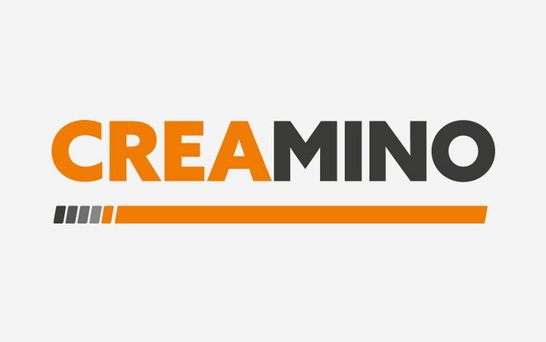Creatine: The missing link for healthy growth
Creatine: The missing link for healthy growth
by Dr. John Thomson, Sales Manager US, AlzChem LLC and Dr. Ulrike Braun, Product Manager, AlzChem Trostberg GmbH
CURRENT FEEDING PRACTICES INCLUDING VEGETARIAN DIETS ARE MISSING CREATINE
The poultry industry is feeding less animal protein to broilers and turkeys today compared to just a decade ago. The use of animal protein was banned in livestock feeds in the year 2000 in Europe due to concerns over public health. The complete ban was lifted, but animal protein use remains low.
Animal protein products, especially fishmeal, add another risk factor as they have been associated with a higher occurence of necrotic enteritis (NE). This associated risk has led many companies who utilize antibiotic-free systems to reduce or eliminate animal byproducts from their feed.
Consumer have concerns over possible health issues that might arise from feeding animal byproducts to livestock grown for human consumption. These concerns have created demand for “vegetarian” diets for farm animals.
In addition, consumer demand is driving the shift to antibiotic-free poultry production. Eliminating antibiotics is often followed by a reduction in performance and an increase in outbreaks of necrotic enteritis (NE).
Restrictions to pure vegetarian diets and the use of antibiotics has resulted in additional challenges for many poultry producers. Higher feed conversion ratios, lower growth rates and lower yields have been experienced. Wet litter and poor foot pad quality are also common. It is apparent we are losing beneficial components by making the shift away from animal byproducts in poultry diets. One important component that has been identified is Creatine – from Greek “Creas” = flesh. Creatine was first isolated from meat in 1847. Creatine is only associated with animal proteins in nature. In contrast, plants do not contain any creatine so plant-based diets are missing this vital nutrient.
The essential function of creatine
Creatine is a compound that is naturally produced by vertebrates from amino acids and stored in various tissues, but especially in muscle and those tissues with a high, fluctuating energy demand. It is required for energy metabolism in the cells as the creatine– phosphocreatine system is the immediate power reserve to recharge ATP from ADP.
Today’s faster growing broilers demand more creatine, but receive less of it
Whole body Creatine content for one broiler in 1957 vs. today measured in grams
In contrast to other nutrients like carbohydrates, protein or fat, the stored phosphocreatine is readily available, comparable to a reserve battery within each cell. This stored energy is ready in times of high energy demand or stress.
The majority (>95%) of the body creatine pool is found in muscle cells. However, other cells including brain, heart, marcophages and sperm cells have a critical need for creatine.
The use of creatine supplements by humans is widely recognized as safe. Supplementation with creatine is proven to improve muscle strength, cognitive abilities and physical performance. It is also useful to maintain muscle mass as humans age. Knowing the importance of creatine to animal and human health, the move to vegetarian diets for animal and humans alike impacts general health, growth and performance.
At 56 days of age, modern broilers are roughly 365% (4202 vs. 905 grams) of the weight of 1957-type broilers. Furthermore, a 12% increase in hot carcass yield (74.4 vs 62.4 %) in 57 day old Ross 308 broilers versus 1957-type broilers is reported. Most of this difference was accounted for by a near doubling of the pectoralis major yield (16.8% vs 8.8%) so the increase in broiler is disproportionately due to increased muscle.
Assuming a creatine content 5 grams/ kilogram muscle and a 60% meat yield, the creatine content of a 56 day old broiler has increased from 2.72 grams vs 12.6 grams compared to the 1957-type bird. Feeding vegetarian diets means that birds have to produce all this creatine endogenously.
A scientific approach to solving the creatine deficit problem
AlzChem is a German company with a history in creatine manufacturing and application. Since its initial success with the introduction of supplements for athletes in 1992, Creapure® - creatine monohydrate brand for human nutrition - has been one of the AlzChem company’s flagship products and is recognized as the leader in the category.
AlzChem recognized the challenges of delivering additional creatine for animal production. The company leveraged its extensive background in creatine manufacturing and knowledge of creatine metabolism to solving the problem. The investigation focused first on whether creatine might be a candidate for providing the missing link in animal protein-free production for animal feed. We have established that creatine is crucial, not only in human nutrition, but also to other high performing animal species for food production like poultry. Yet a practical solution remained elusive.
Animal proteins often fall short
Direct feeding of creatine in modern poultry production, however, is problematic.
An investigation of natural creatine sources for poultry nutrition revealed that even meat meal, fishmeal and other animal derived proteins are very low in their creatine content and highly variable with a span of 20 g. The likely reason is that creatine is not stable in high heat and high moisture conditions – the two most common processes applied in the production of animal proteins for feed.
Finished feed for broilers and turkeys is almost universally pelleted. During this process the creatine present is subjected to high heat and moisture. Therefore, the direct addition of creatine via animal byproducts often fails to provide adequate, consistent creatine enrichment in pelleted animal feed.
Heat stability for GAA is superior to Creatine
However, it was discovered that the direct endogenous precursor of creatine, guanidinoacetic acid (GAA) is stable when subjected to heat and moisture. While creatine levels are reduced by about 30% at 90.5 °C pelleting temperature, GAA shows much higher retention. AlzChem has perfected the formula and production of a non-hygroscopic, freeflowing GAA marketed as Creamino®. It contains 96% GAA and has been shown to increase muscle creatine levels more than 20% when fed as directed.
Feeding Creamino® also spares the Arginine that would normally be used for producing GAA and creatine in the body. This spared Arginine is available for other uses including synthesis of protein and nitric oxide, a compound critical for some types of immune response. Feeding trials with Creamino® have shown beneficial effects in broiler performance compared to both vegetarian and animal protein containing diets.
Based on feeding studies of rations including GAA, one might conclude that creatine may have been limiting for bird growth even with the addition of fishmeal in the diet.
Creamino® provides energy for healthy growth
A combination of reduced dietary creatine and increased muscle mass may challenge the ability of broilers and turkeys to produce enough creatine for optimal growth from de novo synthesis. GAA is readily converted to creatine in the body.
Creamino® contains a guaranteed level of GAA in a flowable, non-hygroscopic, virtually dustfree formulation which holds up under pelleting temperatures. Creatine is absent from plantbased, animal protein-free diets. Further, animal proteins may not contain adequate or dependable creatine levels. Feeding trials demonstrate improvements in bird performance with the addition of Creamino® GAA as a source to supply creatine.
Gains are supported with supplemental Creamino®
Gains as measured in grams/ day with and without fish meal
Creamino® supplementation lowers Feed Conversion Ratio (kg/kg)
Altogether these facts suggest that creatine is part of what is missing from both vegetarian diets and diets containing animal proteins with low creatine content.
Creamino® is the best solution for supplying creatine via GAA available today. Its patented formulation was specifically designed and is approved to effectively address the Creatine deficit present in commercial feed rations. It remains the only reliable, heat-stable option for increasing creatine availability in animal diets using modern feed production methods.

